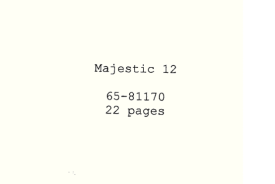On Tuesday, academic student employees at the University of Washington (UW) commenced a strike over pay, highlighting the ongoing struggle for fair compensation in academia.
Represented by United Auto Workers (UAW) Local 4121, these employees include 6,000 undergraduate and graduate teaching assistants, research assistants, instructors, graders, and tutors. After weeks of extended negotiations, the union decided to take action, signaling a critical juncture in their fight for sustainable wages.
Background and Union Demands
The decision to strike came after a prolonged period of negotiations between UAW Local 4121 and the UW administration. The union had been pushing for better wages and working conditions, arguing that the current pay levels are unsustainable for many of their members. According to a news release from the union, most academic student employees earn less than $40,000 per year, making it difficult to cover living expenses in Seattle's high-cost environment. Francesca Colonnese, a predoctoral instructor and union representative, stressed the critical nature of their situation, stating that they had no alternative but to strike. She highlighted that they need a contract that ensures they can continue their research and teaching without being driven away by unsustainable wages.
The union is demanding a 12 percent pay raise for each of the next three years. They argue that this increase is necessary to ensure academic student employees can continue their vital work without financial hardship. The university, however, has offered a 12 percent raise in the first year of the contract, followed by 8 percent raises in the subsequent two years. While the university asserts that this proposal is fair, the union maintains that it falls short of addressing the cost-of-living increases faced by its members.
University's Response and Ongoing Negotiations
In response to the strike, UW's administration expressed their commitment to reaching a fair agreement. Victor Balta, university spokesman, and assistant vice president for communications, stated that negotiations continued until very late on the eve of the strike. He emphasized that the university is bargaining in good faith and values its academic student employees. Balta explained in an email that the university has been making efforts to maintain academic continuity, preparing to ensure that classes continue and students can complete their degrees despite the strike. He expressed hope that the impact on UW students would be minimal.
Despite these assurances, the strike has already begun to impact the university's operations. More than 1,250 academic student employees signed up for picket shifts on the first day, with additional shifts scheduled throughout the day. The union has not provided specific numbers on how many workers are withholding their labor or how many classes have been canceled. Still, the high turnout suggests significant support for the strike among the union members.
The previous strike by postdoctoral researchers, research scientists, and engineers at UW, also represented by UAW Local 4121, resulted in substantial pay increases after a week and a half of action in June 2023. This precedent gives current strikers hope that their efforts will lead to meaningful changes in their compensation and working conditions.
Implications and Future Prospects
The strike at UW highlights broader issues within academia regarding the treatment and compensation of academic student employees. These workers often play a crucial role in universities' educational and research missions, yet they frequently face financial instability and challenging working conditions. The outcome of this strike could set a significant precedent for similar disputes at other institutions, particularly as living costs continue to rise in many urban areas where universities are located.
For the University of Washington, the strike presents both a challenge and an opportunity. The administration must navigate the immediate disruption to its academic programs while also considering the long-term implications for attracting and retaining talented students and researchers. A fair and timely resolution to the dispute could enhance the university's reputation as a supportive and equitable employer. At the same time, failure to address the union's demands could lead to prolonged unrest and potential harm to the institution's academic standing.
As the strike continues, both sides are under pressure to find a resolution that acknowledges the critical contributions of academic student employees while balancing the university's financial constraints. The negotiations will likely be closely watched by other universities and academic unions across the country as they grapple with similar issues in an increasingly competitive and challenging higher education landscape.
The strike by academic student employees at the University of Washington underscores the urgent need for fair compensation and sustainable academic working conditions. The outcome of this dispute will not only impact the strikers and the university but also resonate throughout the higher education community, potentially shaping future labor negotiations and policies.
© 2026 University Herald, All rights reserved. Do not reproduce without permission.








